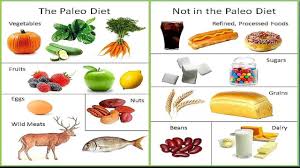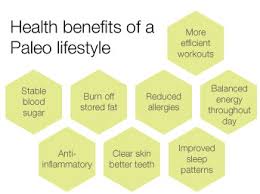Paleo Diet for Better Performance
 When you indulge in high-intensity workout that demands a lot of endurance, you need a diet that not only helps you to perform better but to recover quickly as well. In other words, the diet should work in harmony with the activity. A marathon runner or a weight lifter will have different needs than that of a competitive Cross Fitter. However, despite these differences, all athletes have a similar requirement that is of optimizing performance and recovery. And one such diet that complements the level of activity that athletes do is the Paleo diet.
When you indulge in high-intensity workout that demands a lot of endurance, you need a diet that not only helps you to perform better but to recover quickly as well. In other words, the diet should work in harmony with the activity. A marathon runner or a weight lifter will have different needs than that of a competitive Cross Fitter. However, despite these differences, all athletes have a similar requirement that is of optimizing performance and recovery. And one such diet that complements the level of activity that athletes do is the Paleo diet.
What is the Paleo diet?
The Paleo diet doesn’t require counting of any calories and it allows you to eat until you are full and satisfied. It can help you lose weight, build muscle, and get in best shape as well. But the key is to do it right. Chiropractors Dr. Daniel Chatfield and Dr. Janet Georgis tells us that you need to have a right mindset, the focus should be on right kind of foods, and most importantly you need to structure your environment in such a way that you do not backtrack and abandon the diet in few days.
 Why should athletes follow Paleo diet?
Why should athletes follow Paleo diet?
Paleo diet is good for athletes; however it needs to be adjusted a bit. This diet is full of high-quality proteins which contain complex carbohydrates to assist in energy stores and building or recovery of muscles. It also consists of essential amino acids for recovery, healthy fats for energy, and loads of fresh vegetables. Athletes can customize the quantity of each of these based on their sport and goals.
Proteins- The foundation
An athlete needs to take into account the nature of his/her training. Depending upon the built of an athlete, most meals should contain about 80-220 grams of protein. This amount of protein ensures that an athlete is getting enough to help in recovery, but not too much also where they have no space left for essential fats and carbohydrates. The amount of protein needs to remain more or less same every day, but carbs and fats need to be adjusted basis the training intensity.
Modifying the Carbs intake
Athletes need carbohydrates for energy stores, for rebuilding and recovery of muscles. Carbs play a significant role in improving performance. However, the number of carbs intake will depend upon the intensity of training. Paleo friendly carbs like sweet potatoes or fruits are great options. Dr. Chatfield and Dr. Georgis recommend that eating them within 30-60 minutes of training will help in muscle repair and glycogen stores. The general rule is to take 1:1 ratio of proteins and carbohydrates post-training. For a high-intensity workout, an athlete can bump up the carbs.
Fats and vegetables
They provide for long-lasting energy levels, keep you full, and are essential for healthy living. The veggies give you fiber and tons of vitamins and minerals. Athletes can add more fats on lighter training days, and reduce the carbs intake. Dr. Daniel Chatfield and Dr. Janet Georgis emphasize on including fresh veggies in the diet throughout the day.
Overall, the Paleo diet is great for athletes and with minor tweaks; it can do wonders for them. For more information, contact Chatfield chiropractic in Roxburgh Park on (03) 9303 9952 or Sunbury (03) 9746 3977.
